Troubleshooting Tips for Common
Parkville Water Heater Problems
Ensuring the efficient operation of your water heater is essential for maintaining a well-functioning household in the Parkville area. When it comes to daily routines, we heavily depend on this crucial appliance. However, encountering problems with your water heater can be an inconvenient and chilly surprise. To help you effectively handle common issues that may arise, we have put together a comprehensive troubleshooting guide. By promptly addressing these concerns, you can guarantee that your water heater remains in good working order, enabling you to enjoy a hassle-free daily routine without any interruptions.
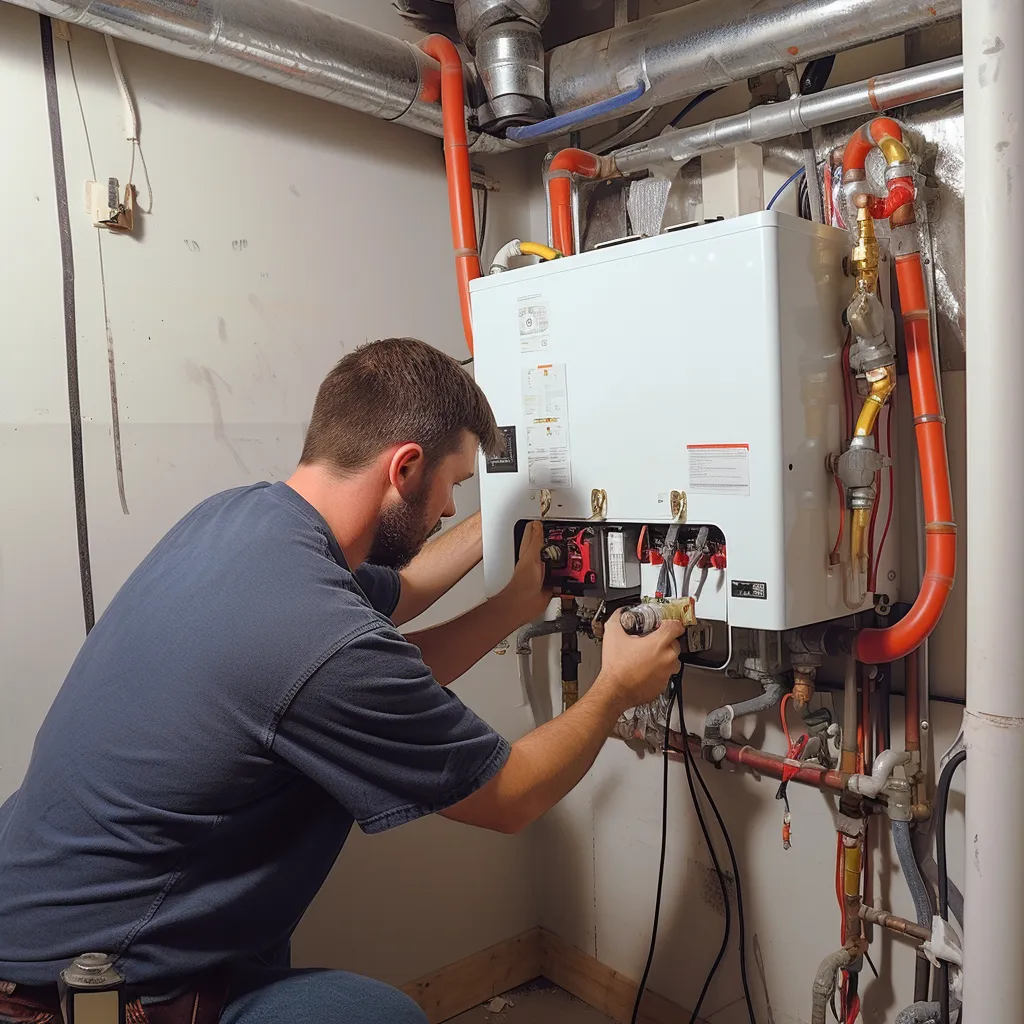
The tank is leaking
If you come across a water heater leak, it could be attributed to either a defective pressure relief valve or a corroded tank. Here's a guide on how to tackle this problem effectively:
Assess the functionality of the pressure relief valve. If you observe any leakage or inadequate pressure release, it is advisable to replace the valve. To ensure a correct replacement, refer to the manufacturer's instructions or enlist the help of a professional.
Conduct a thorough examination of the tank for indications of corrosion, such as rust or deterioration. Should you discover any signs of corrosion or damage, it is crucial to promptly replace the tank. By doing so, you can prevent further leaks and potential malfunctions.

The water is discolored
If you notice discolored water coming from your water heater, it could be an indication that flushing and descaling are required to maintain optimal performance. To address this issue, follow these steps:
Ensure that the pressure relief valve is in good working condition. If you suspect it is faulty, it's recommended to seek professional assistance to replace the valve.
Create a solution of white vinegar and water to flush your water heater. By doing so, you can effectively eliminate sediment and mineral buildup, leading to improved performance.
Take the time to inspect the anode rod for any signs of corrosion or deterioration. Should you find evidence of corrosion, it's advisable to replace the anode rod promptly to prevent further damage.
If the situation warrants it, don't hesitate to contact an expert to carry out a thorough descaling treatment, ensuring that your water heater receives the necessary maintenance.
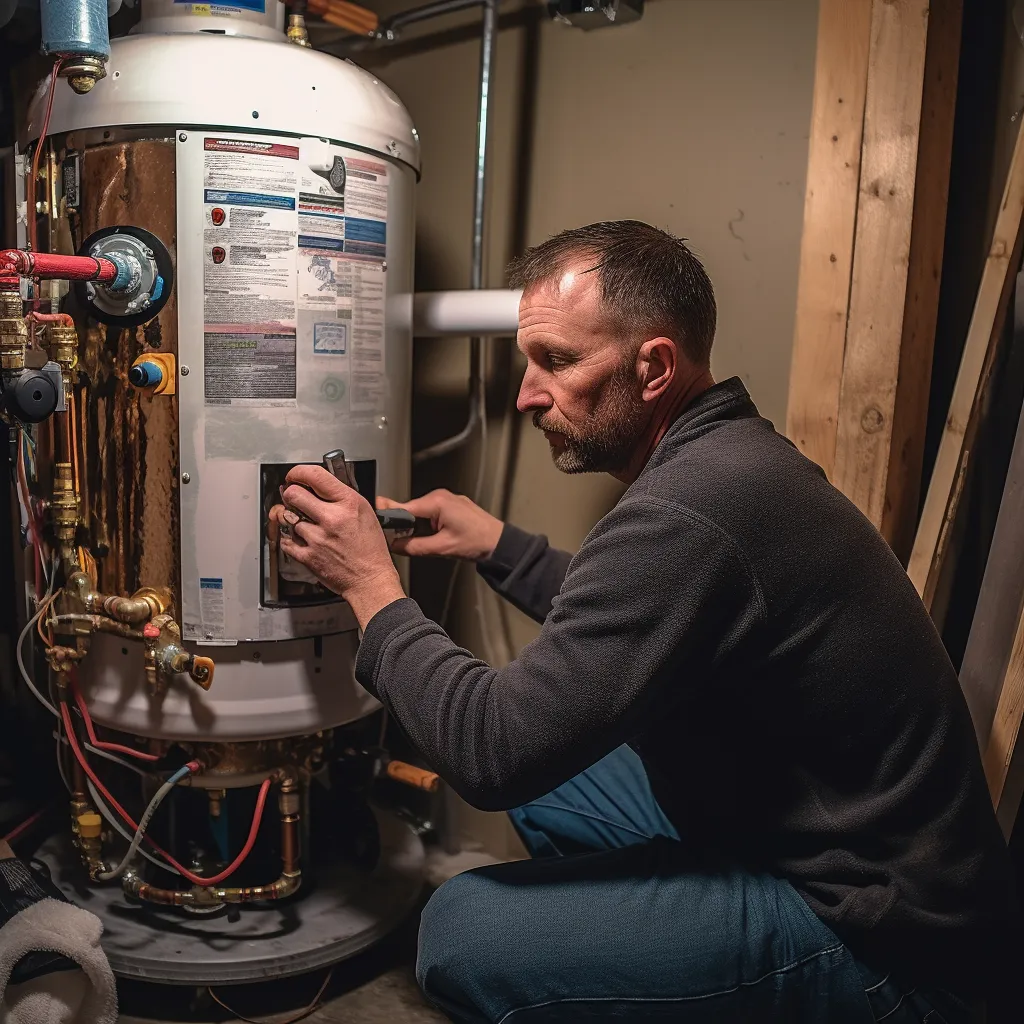
The water smells bad
To address tank issues in your water heater resulting from bacterial accumulation, it is crucial to follow these steps for effective resolution:
Seek professional assistance: Engage the services of a qualified expert who can thoroughly examine the tank and determine if it requires replacement. Their expertise will help you make an informed decision.
Implement a flushing procedure: Conduct a thorough flush of the water heater using a solution made from a combination of white vinegar and water. This process aids in minimizing unpleasant odors associated with bacterial growth.
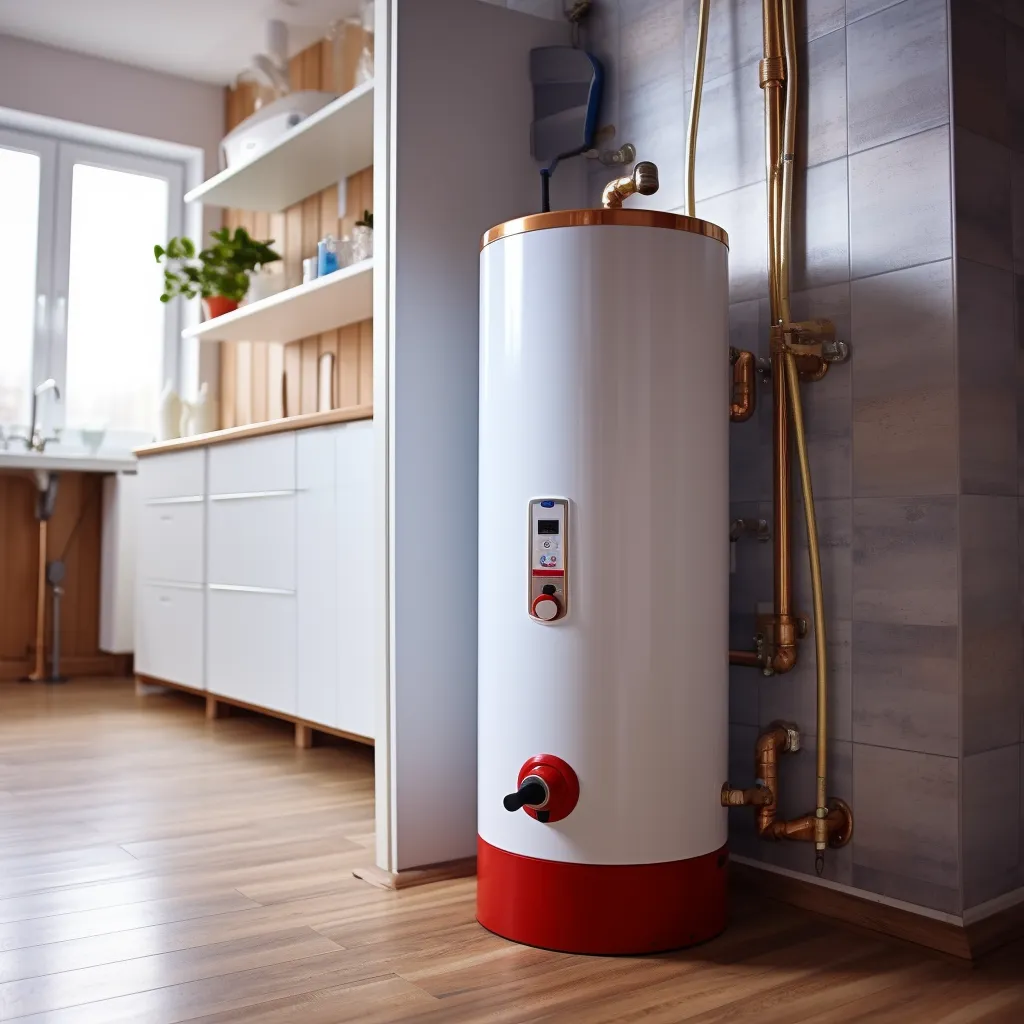
Noisy water heater
If you're experiencing uncommon sounds coming from your water heater, the cause might be sediment accumulation or loose components. To effectively deal with these problems, consider the following steps for optimal results:
Flushing your water heater: To effectively manage sediment buildup, it's essential to perform regular flushing of your water heater. By draining the tank and eliminating any sediment that has accumulated over time, you can help maintain its efficient operation.
Professional inspection of internal components: It is recommended to reach out to a licensed plumber for a thorough inspection of all internal components in your water heater. By engaging an expert, you can ensure that all parts are securely fastened and appropriately tightened, addressing any potential issues that might be contributing to the unusual noises.

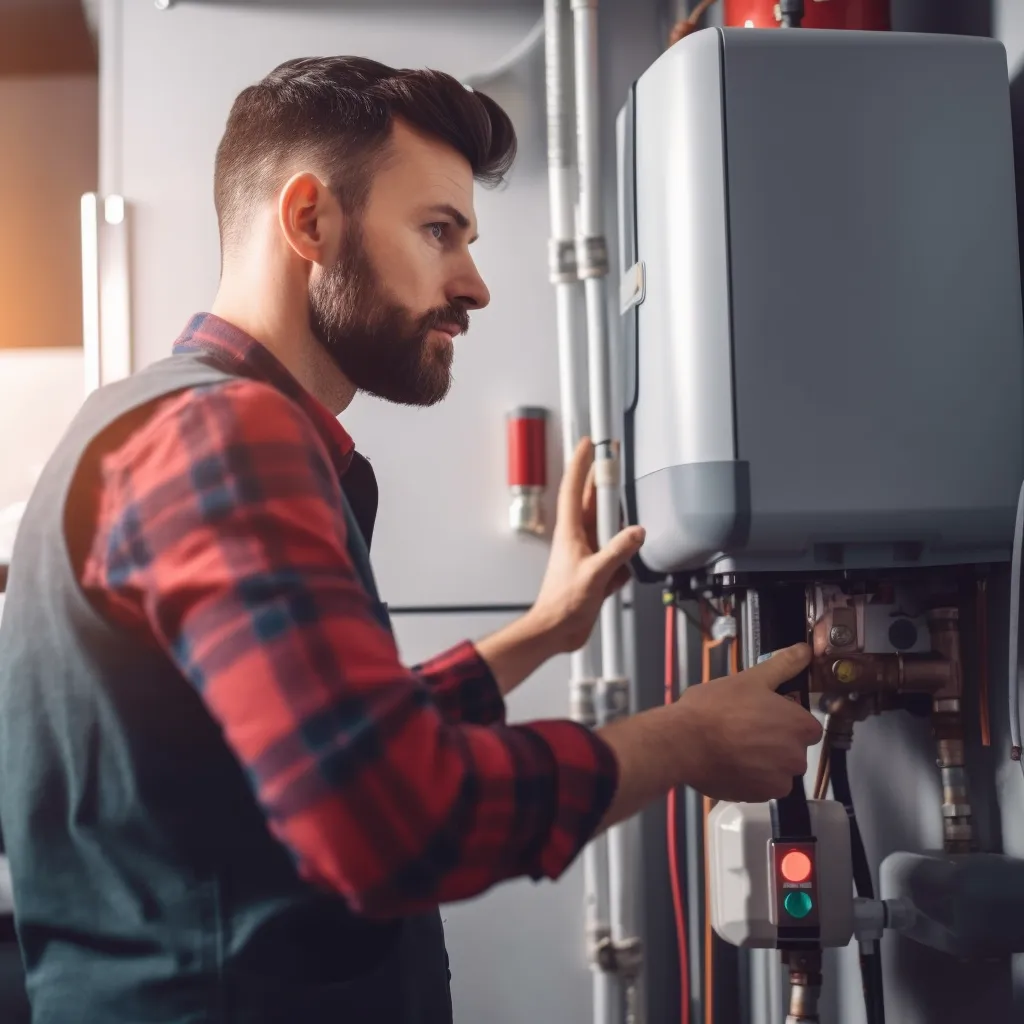
Tank takes a long time to reheat
If you're experiencing long reheat times with your tank water heater, there are several potential causes to consider. Issues like a malfunctioning thermostat, an undersized tank, or mineral buildup could be contributing to the problem. To address this issue effectively, follow these steps:
Ensure that the thermostat is set to the desired temperature and adjust it if needed. Sometimes, incorrect thermostat settings can lead to inadequate water heating.
If you notice that the water is not heating up as expected, a malfunctioning thermostat might be to blame. It's advisable to seek the assistance of a professional to inspect and potentially repair or replace the thermostat.
Over time, mineral buildup can accumulate in the tank, impeding the heating process. To determine if mineral buildup is causing the slow reheat times, it's recommended to have a professional inspect the tank for such deposits.
In cases where you frequently run out of hot water, it could indicate that your current tank is undersized for the demands of your household. Consider consulting a professional to assess your hot water needs and determine if upgrading to a larger tank would be beneficial.
Low hot water pressure
If you're experiencing a decrease in hot water pressure, it's essential to identify the underlying causes for effective resolution. Two common factors that can lead to this issue are an inadequately sized hot water tank and a plumbing system with leaks. By following these steps, you can address the problem:
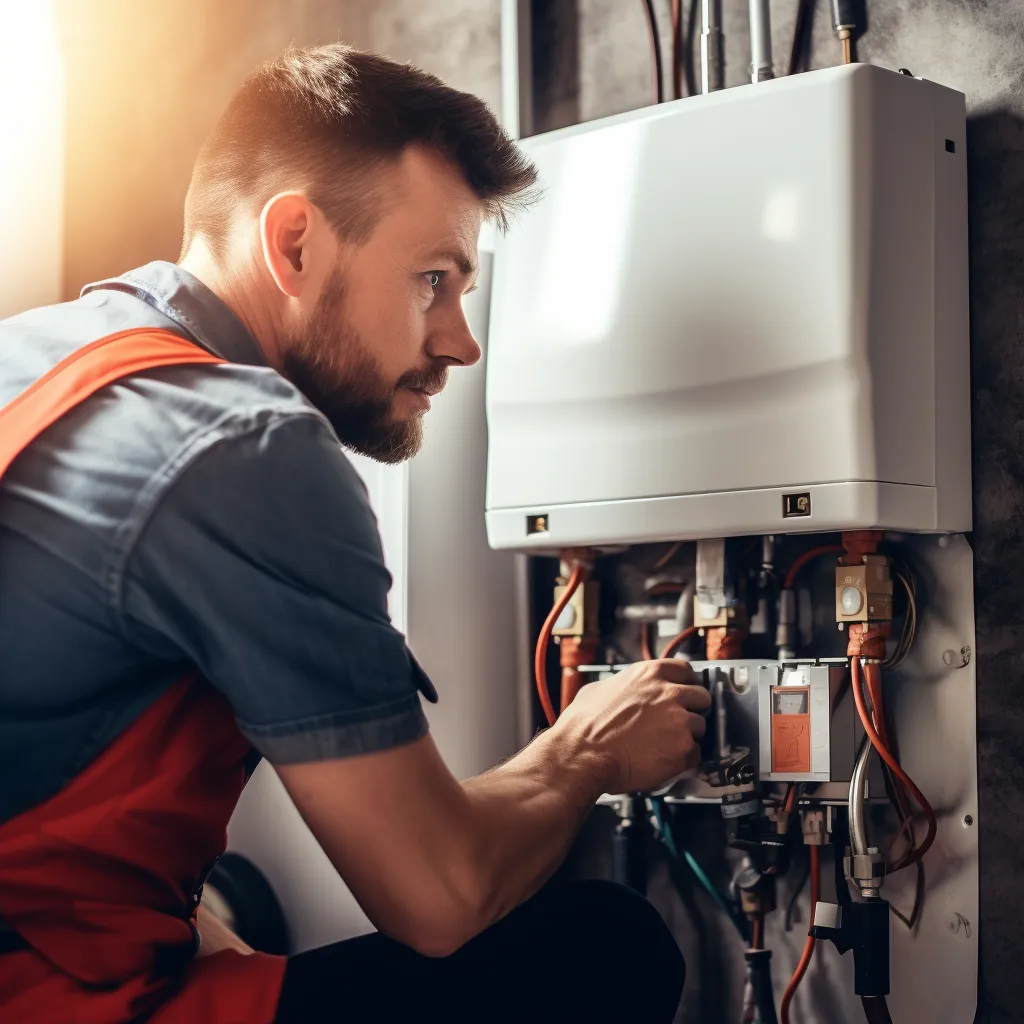
It's crucial to ensure that your hot water tank is appropriately sized to accommodate the hot water demands of all the outlets in your home. If the tank is too small, you may want to consider upgrading to a larger one. This upgrade will enhance the hot water pressure, enabling a more satisfactory water flow throughout your household.
It's advisable to seek assistance from a professional plumber who can inspect your plumbing system thoroughly. Their expertise will help identify any leaks within the system that might be contributing to the decreased hot water pressure.
Once the leaks are detected, the plumber can efficiently repair them, thereby restoring the proper water flow and improving the overall hot water pressure in your home.
It's essential to verify that the pressure relief valve is in good working condition. This valve is specifically designed to release any excess pressure present in the hot water tank. By ensuring its proper functionality, you can prevent potential pressure-related issues and maintain optimal hot water pressure.

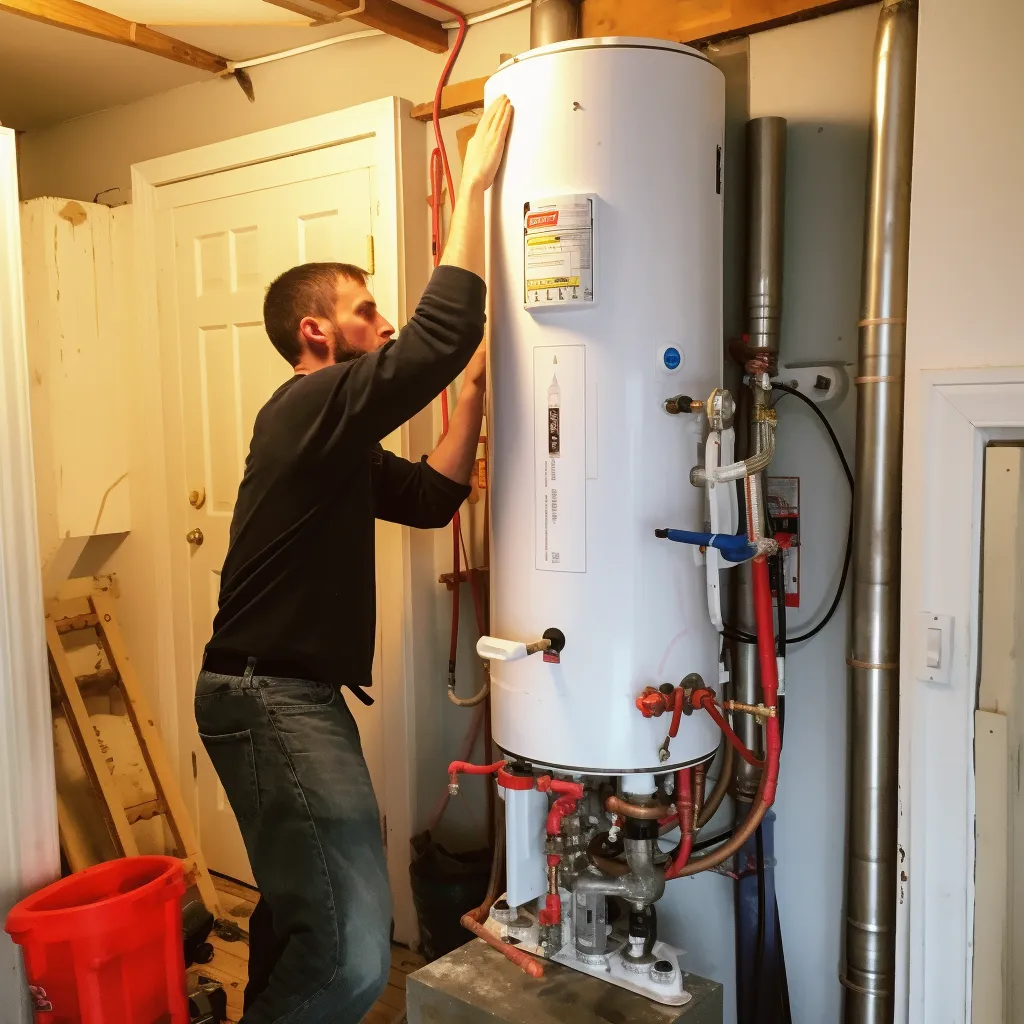
Low supply of hot water
If you're encountering a situation where your hot water supply is insufficient and loses heat rapidly, there are a few potential causes to consider. These include a faulty thermostat, a tank that is too small for your needs, or blocked pipes. To help you address this issue effectively, here are some troubleshooting tips:
Verify thermostat functionality: It's important to ensure that the thermostat on your water heater is functioning properly. Check if it is set to the desired temperature and that it accurately controls the heating element.
Seek professional inspection and descaling: To get a thorough assessment of your water heater, it is recommended to hire a licensed professional. They can examine your system and provide expert guidance. Additionally, descaling may be necessary to remove mineral buildup that could affect the heater's performance.
Consider upgrading to a larger tank: If your current water heater tank is unable to meet your hot water demands, it is possible that it is undersized. In such cases, upgrading to a larger tank can help ensure an adequate supply of hot water.
Ways to prevent future water heater problems
To ensure the long-term functionality of your water heater, it is important to take certain preventive measures. By following these steps, you can minimize the likelihood of future issues:

Conduct periodic inspections of your water heater to identify any signs of wear and corrosion.
Regularly flush out the tank to eliminate sediment buildup, which can affect the efficiency of your water heater.
Keep a close eye on valves and fittings, checking them frequently for leaks that could lead to water damage or inefficiency.
Replace the anode rod every few years to prevent corrosion within the tank.
Consider scheduling professional descaling or annual servicing to maintain the optimal performance of your water heater.
Ensure that you have chosen the appropriate water heater size based on your specific needs, as this can affect efficiency and functionality.
Adjust the temperature settings of your water heater to match the recommended guidelines, promoting both safety and energy efficiency.
Insulate your pipes to minimize heat loss, helping to conserve energy and maintain hot water temperatures.
If you're in the market for a new water heater, consider energy-efficient models that can reduce your overall energy consumption.
Address any leaks promptly to prevent further damage or water wastage.
Take the time to familiarize yourself with the location of the shutoff valve, enabling you to quickly and effectively respond to emergencies or maintenance needs.

By implementing these measures, you can optimize the performance of your water heater and mitigate the risk of potential issues down the line.
What to look for in a licensed plumber
When searching for a licensed plumber, it is crucial to conduct thorough research and take certain factors into account. The following considerations are essential for making an informed decision:

License and Insurance: One of the key aspects is verifying that the plumber holds a valid license and has appropriate insurance coverage to operate in your locality. This not only assures you of their credibility but also provides protection and peace of mind.
Experience and Specialization: It is advisable to choose a plumber who possesses ample experience and specializes in water heater repair and maintenance. By doing so, you can benefit from their specific expertise and ensure that they are well-equipped to handle your unique requirements.
Service Guarantees and Emergency Availability: Inquire about any service guarantees offered by the plumber. A reputable professional will stand behind their work and provide warranties or guarantees for the services rendered. Additionally, consider their availability in emergency situations. It is crucial to have a plumber who can promptly respond and assist you during unforeseen plumbing emergencies.
Effective Communication: Selecting a plumber who communicates effectively is vital. Look for someone who can clearly explain the work being performed, including the services provided and any necessary repairs or maintenance. This ensures that you have a comprehensive understanding of the work being done and facilitates smooth communication throughout the process.
Reach out to an experienced professional
When faced with issues concerning your water heater, it is crucial to identify the root causes behind the problems. To ensure a dependable and durable resolution, it is recommended to engage the services of a licensed water heater professional who can thoroughly examine the unit. By implementing these recommendations, you can effectively tackle water heater challenges and uphold the efficient operation of your home. Should you require additional support or guidance, feel free to reach out to a skilled plumber who can evaluate your water heater and propose effective measures to restore its proper functioning.
Contact Us
GET IN FULL TOUCH
PHONE: (410) 883-5584
EMAIL:
william@waterheaterparkville.com
Strong Plumbing Parkville
Parkville, MD 21234

